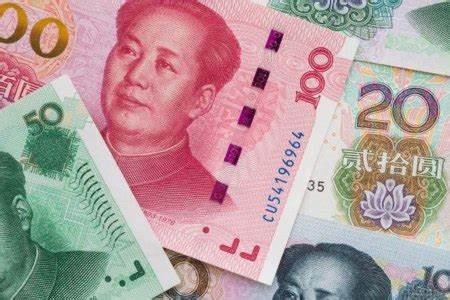The Labour Party, a cornerstone of British politics, finds itself navigating a complex landscape, grappling with the aftermath of a devastating general election defeat and the search for a new leader to steer the party back to power. This article delves into the intricate world of Labour leadership odds, analyzing the factors that influence these predictions and examining the potential implications for the party’s future.
Understanding the Odds
Leadership contests within political parties are inherently dynamic events, characterized by shifting alliances, evolving public perceptions, and the ever-present element of surprise. Betting markets, however, offer a unique window into the perceived likelihood of different candidates emerging victorious.
How Odds are Determined
Bookmaker Assessments: Bookmakers meticulously analyze various factors, including:
Candidate Popularity: Public opinion polls, social media trends, and media coverage provide valuable insights into a candidate’s appeal to both party members and the wider electorate.
Policy Stances: A candidate’s position on key issues like Brexit, the economy, and social justice significantly influences their perceived electability.
Endorsements: Support from influential figures within the party, trade unions, and prominent public figures can significantly boost a candidate’s odds.
Campaign Momentum: A strong and well-organized campaign can generate significant momentum , attracting media attention and swaying public opinion.
Market Dynamics: The betting market itself is a dynamic entity, with odds constantly fluctuating based on:
New Information: Breaking news, public statements, and unexpected events can dramatically impact a candidate’s perceived chances.
Market Sentiment: The overall mood and expectations within the betting market can influence odds, even in the absence of significant new information.
Smart Money: Large bets placed by experienced political bettors can signal a shift in market sentiment.
Key Factors Influencing Labour Leadership Odds
Policy Positions
Brexit: The Labour Party remains deeply divided on Brexit. A candidate advocating for a clear and decisive break with the EU might appeal to certain factions, while others may favor a more nuanced approach.
Economic Policy: Labour’s traditional focus on social justice and economic equality will be a key battleground. Candidates with compelling economic visions that resonate with both party members and the wider public will likely gain an edge.
Social Issues: Positions on issues such as climate change, healthcare, and social welfare will be closely scrutinized. Candidates who can effectively articulate a progressive vision on these issues while appealing to a broad spectrum of voters will be well-positioned.

Candidate Profiles
Experience: Candidates with proven track records of political success, both within the party and in government, are often seen as more credible and electable.
Communication Skills: The ability to effectively communicate complex policy positions to the public is crucial in today’s media-saturated environment.
Charisma and Leadership Qualities: Voters and party members alike are drawn to candidates who exude charisma, confidence, and strong leadership qualities.
Political Landscape
State of the Opposition: The strength and weaknesses of the Conservative Party will significantly impact the calculus for Labour leadership contenders. A strong opposition leader will face a more challenging path to victory.
Public Opinion: Shifting public sentiment on key issues can dramatically alter the political landscape and impact the fortunes of individual candidates.
Economic Conditions: The state of the economy plays a crucial role in determining voter behavior. A struggling economy can benefit the opposition, while a robust economy can make it more difficult to unseat the incumbent government.
The Human Factor
Campaign Strategy: The effectiveness of a candidate’s campaign strategy can significantly influence their odds. A well-executed campaign can mobilize support, generate media attention, and build momentum.
Media Coverage: Favorable media coverage can significantly boost a candidate’s profile and enhance their perceived electability. Conversely, negative media attention can damage a candidate’s reputation and derail their campaign.
Unexpected Events: Unforeseen events, such as scandals, economic crises, or political upheavals, can dramatically alter the political landscape and impact the leadership race.
Analyzing the Odds: A Case Study
To illustrate the complexities of analyzing leadership odds, let’s consider a hypothetical scenario:
Candidate A: A seasoned politician with a strong track record on economic issues, but a more moderate stance on social issues.
Candidate B: A charismatic newcomer with strong support from younger party members, but limited experience in government.
In this scenario, Candidate A might initially have higher odds due to their experience and perceived electability. However, if Candidate B successfully mobilizes grassroots support and gains traction in the media, their odds could quickly improve.
The Implications for the Labour Party
The outcome of the Labour leadership contest will have profound implications for the party’s future. A new leader will need to:
Unite the Party: Heal the deep divisions within the party and forge a united front against the Conservative Party.
Develop a Compelling Vision: Articulate a clear and compelling vision for the country that resonates with voters across the political spectrum.
Rebuild Trust: Regain the trust of voters who abandoned the party in the last election.
Prepare for the Next General Election: Develop a winning electoral strategy and build a strong and effective campaign organization.
Final Thoughts
The Labour leadership contest is a high-stakes event with significant implications for the future of the party and the country. While betting odds offer valuable insights into the perceived likelihood of different candidates emerging victorious, they are not infallible predictors.
FAQs
Who is currently leading the Labour Party?
As of now, Keir Starmer is the incumbent leader of the Labour Party. He has been in leadership since April 2020, taking over from Jeremy Corbyn after a turbulent period for the party. Starmer’s leadership has been focused on distancing the party from Corbyn’s left-wing policies and attempting to appeal to a broader electorate.
How are the Labour leadership odds determined?
The odds for Labour leadership are often influenced by several factors, including polling data, public support, party endorsements, and the candidates’ performance in interviews or debates. Betting markets, internal party dynamics, and media coverage also contribute to shaping these odds. Political commentators and analysts often track these metrics to gauge who might have the best chance of succeeding.
What role does the media play in the leadership odds?
Media coverage plays a crucial role in shaping the odds for any leadership race. Candidates who can effectively manage media narratives, give compelling interviews, and get positive press coverage have a significant advantage. Conversely, negative press or controversial moments can greatly reduce a candidate’s odds. Labour leaders, in particular, often face intense scrutiny from both the press and the public, which can sway opinion in real-time.
To read more, Click Here




Leave a Reply